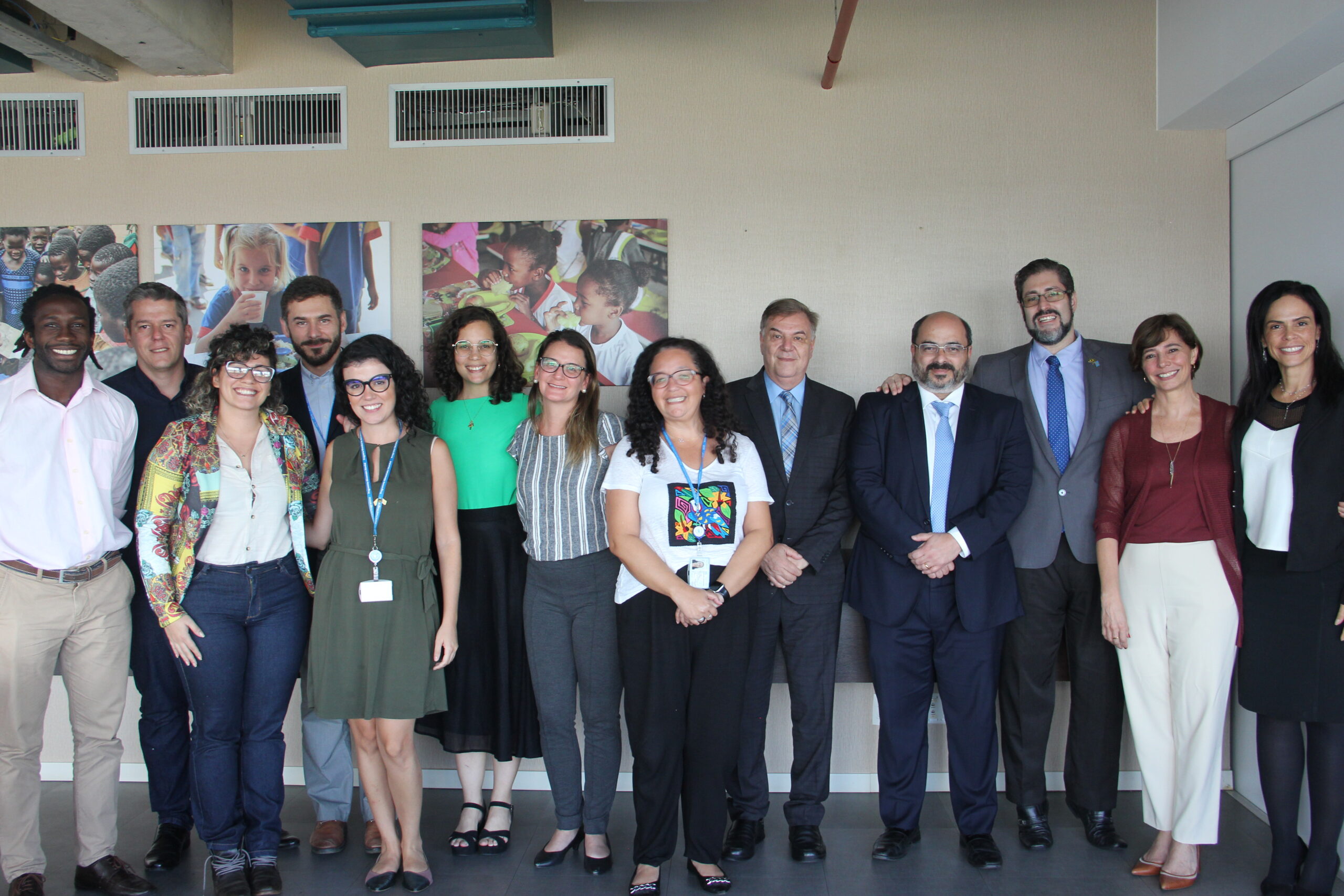 This Wednesday, 01 February, the World Food Programme (WFP) Centre of Excellence against Hunger Brazil received the team from the Labour Prosecutions Office (MPT, in Portuguese) for a workshop with the objective of advancing the design of the cooperation agenda between the institutions during the period from 2023 to 2025. In November 2021, a technical cooperation agreement was signed between the Centre of Excellence and the Labour Prosecutions Office (MPT) for the development of joint actions, studies and projects in the achievement of their respective institutional goals.
This Wednesday, 01 February, the World Food Programme (WFP) Centre of Excellence against Hunger Brazil received the team from the Labour Prosecutions Office (MPT, in Portuguese) for a workshop with the objective of advancing the design of the cooperation agenda between the institutions during the period from 2023 to 2025. In November 2021, a technical cooperation agreement was signed between the Centre of Excellence and the Labour Prosecutions Office (MPT) for the development of joint actions, studies and projects in the achievement of their respective institutional goals.
For the Director of the Centre of Excellence, Daniel Balaban, public institutions are fundamental to building a better future and fighting hunger and inequality. “What makes a country respected are solid and perfectly functioning institutions. That is why we have started this conversation with the Labour Prosecutor’s Office, to join forces,” Balaban said.
The Centre of Excellence team then presented to the MPT representatives the Centre’s work and WFP’s work around the world, as well as the Beyond Cotton, Nurture the Future and the Virtual Exchanges projects, through which the Centre partners with several countries to develop sustainable solutions against food and nutrition insecurity.
According to Senior Programme Officer and Partnership focal point at the WFP Centre of Excellence, Igor Carneiro, world hunger has been increasing driven by conflict, the climate crisis, the economic downturn and the Covid-19 pandemic. Currently, nearly 345 million people in the world suffer from severe hunger, according to The State of Food Security and Nutrition in the World (SOFI 2022) study.
The Labour Prosecutions Office (MPT) team also presented its main fronts of action and the work it has been carrying out, monitoring compliance with labour legislation. The MPT is present in every state in Brazil and its role is to promote public civil action within the scope of the Labour Justice to defend collective interests and protect social rights constitutionally guaranteed to workers.
According to Augusto Meirinho, secretary of international labour cooperation, the partnership with the Centre can boost several projects in both institutions. “I would very much like to thank WFP for hosting us once again. We are now starting the work of developing what we have been talking about for some time. We want to work together to improve the lives of people who are in situations of vulnerability,” said Meirinho.
On behalf of MPT, the coordinators of work of high relevance to the mandate and work of the WFP also participated. Coordinators included Sofia Vilela de Moraes e Silva, assistant secretary for international labour cooperation, Adriane Reis de Araújo, national coordinator of the National Coordination for the Promotion of Equal Opportunities and the Elimination of Discrimination at Work (Coordigualdade, in Portuguese), Ana Maria Villa Real Ferreira Ramos, national coordinator of the National Coordination to Combat the Exploitation of Child and Adolescent Labour (Coordinfânica, in Portuguese) and Lys Sobral Cardoso, national coordinator of the National Coordination to Eradicate Slave Labour and Combat Trafficking in Persons (CONAETE, in Portuguese).




